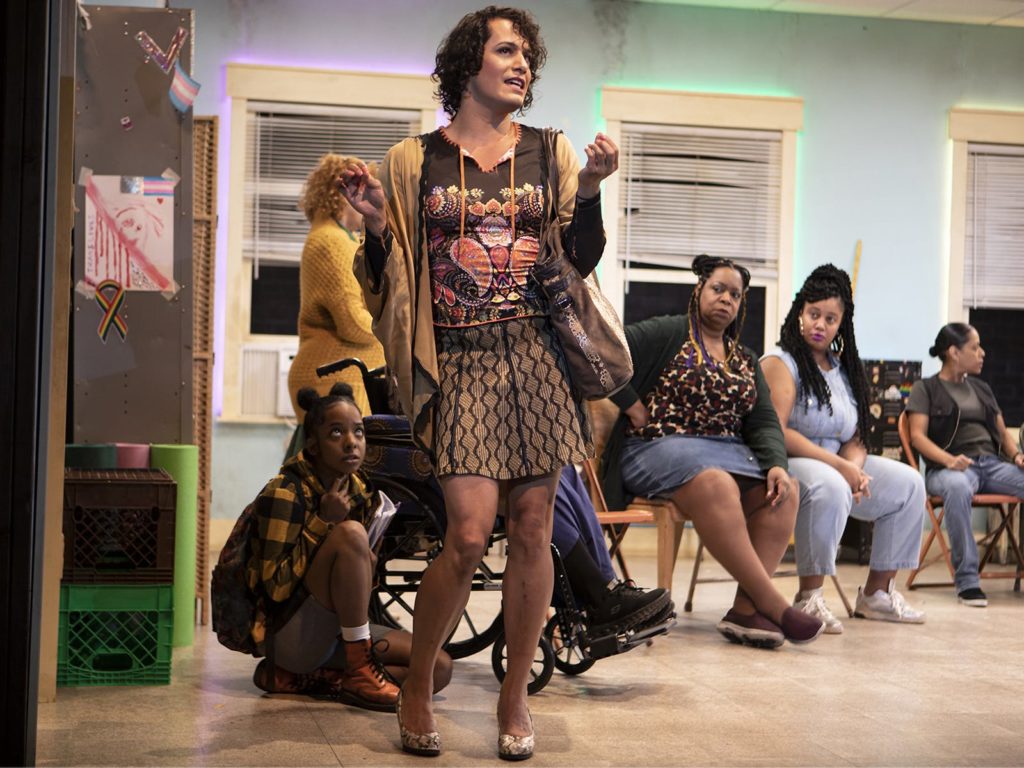In today’s Wall Street Journal “Sightings” column, I write about the different ways in which playwrights make stage dialogue sound “realistic.” Here’s an excerpt.
* * *

Stephen Adly Guirgis recently gave an interview to Vox in which he talked about the dialogue in “Halfway Bitches Go Straight to Heaven,” his new play about the denizens of a halfway house for troubled women. “I write about all different types of people,” he said, “but often I’m writing about New Yorkers—working class, lower working class—and I just grew up really falling in love with the language and the rhythms of street and slang. It’s like music to me.”
To be sure, some viewers may find it hard to hear the “music” in speeches like the one in which a resident of Hope House describes another character as “a greazy, skank-ass, fug-lified motherf—er.” But that’s the point. As I wrote in my review, the dialogue of the characters in “Halfway Bitches” has “all the idiomatic savor of August Wilson at his best….Mr. Guirgis, like Mr. Wilson before him, miraculously turns their potty-mouthed argot into inner-city poetry.”…
“Halfway Bitches” wasn’t the only show produced in New York this winter in which what linguists call the “vulgate” is transformed into a kind of folk poetry. Horton Foote did much the same thing with the Texans in “The Young Man from Atlanta,” as did Brian Friel with the Irish villagers of “Molly Sweeney.” What all three playwrights have in common with Mr. Wilson is a preternaturally sensitive ear for the way ordinary people talk…
* * *
Read the whole thing here.